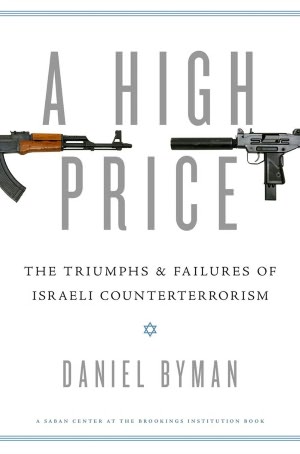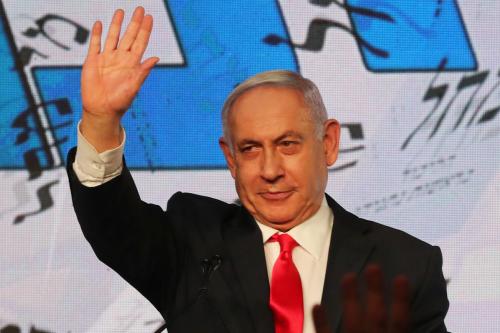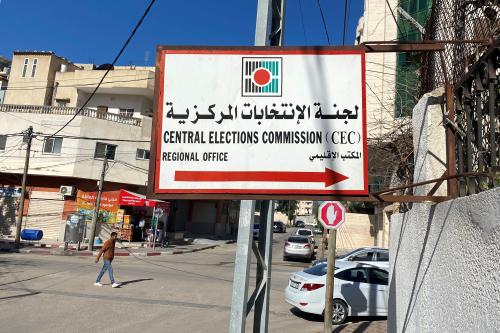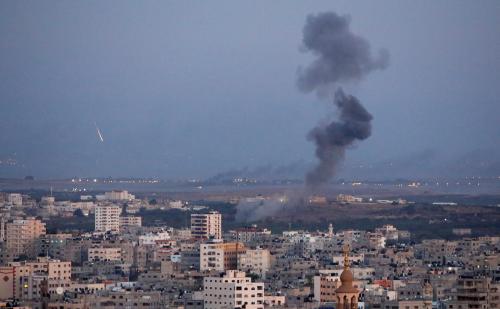The latest round of Israeli-Palestinian fighting began in Jerusalem, but it has spread throughout Israel and to Gaza. The bloodshed could become more intense, leading to another Israeli ground operation in Gaza and far more casualties than we’ve already seen. Even if Israel batters the Hamas leaders in Gaza into submission, the violence threatens to further weaken peaceful Palestinian voices, help Hamas overcome its many weaknesses, and create new rifts within the state of Israel.
The latest conflict grew out of threatened evictions of Palestinians from the Sheikh Jarrah neighborhood in Jerusalem and was magnified after provocative Jewish settler marches through Arab areas of the city, with some marchers chanting “death to Arabs.” Violence spread to the Al-Aqsa Mosque compound, one of the holiest sites in Islam, and an Israeli police raid on the venerated mosque — including the use of stun grenades on worshipers demonstrating there — set off more demonstrations. At the same time, Israeli officials tried to deescalate, postponing the evictions and rerouting a potentially provocative parade by religious Jewish nationalists.
Things took a dramatic turn on Monday, when Hamas and another Islamist group, Palestine Islamic Jihad, sent massive salvos of rockets into Israel, firing them toward Jerusalem, with claims of defending the holy mosque and Palestinians there against Israeli aggression — the first rocket attacks on Jerusalem since 2014. Israel then responded with airstrikes on Gaza, which Palestinian health officials claim have killed 53 people, including 13 children, as of Wednesday afternoon. Hamas launched more rockets at Tel Aviv, as well as targets closer to Gaza, such as Ashkelon. Residents of cities targeted by the rockets are forced to hide in shelters and rocket attacks have killed seven Israelis, increasing pressure on the Israeli government to act. Arab citizens rioted in several Israeli cities and towns. In mixed Jewish-Arab cities, including Jaffa but especially Lod (Lydda) and Acre, communal violence not seen in decades included mobs attacking civilian homes, synagogues, and property, with vigilante violence and reprisals.
Why would Hamas fire rockets and make the situation worse, knowing that Israel will hit Gaza hard?
Hamas has long faced a dilemma as it tries to balance its roles as the government of Gaza and as the leading Palestinian resistance group to Israel. Neither seemed to offer a path to becoming the uncontested leader of the Palestinian national movement and ultimately defeating Israel. As the de facto ruler of Gaza since 2007, Hamas has succeeded in keeping power despite Israeli, U.S., and international pressure, as well as repeated Israeli military incursions. The isolation, however, prevents Gaza from growing economically and keeps the humanitarian situation dire. As a result, Hamas is unable to provide economic growth or other benefits to Gazans and demonstrate it is an effective leader of the Palestinians.
At the same time, Hamas faces challenges when it attacks Israel. As the latest strikes demonstrate, Israel will not hesitate to hit Gaza hard in response to Hamas provocations. Israel and Hamas have squared off in major confrontations in Gaza in 2008-09, 2012, and 2014, as well as numerous small attacks and responses in between. Gaza has come off the worse for these, and Palestinian suffering has been enormous. Hamas killed few Israelis in these confrontations, but it has solidified its hold on power. The destructive Israeli response is intended to send a message that violence will backfire and make it harder for Hamas to portray its leadership of Gaza as a success.
Hamas has also suffered as the Middle East has changed and hope for foreign support has declined. The Arab Spring, the civil war in Syria, and other political earthquakes made the Israeli-Palestinian issue less politically salient for many people in the region and around the world. Major shifts that once would have riveted world attention, like the United States’ move of its embassy to Jerusalem, generated little meaningful outrage. The signing of the Abraham Accords, which formalized a peace between Israel and the United Arab Emirates, was another nail in the coffin and was followed by peace deals with Bahrain, Morocco, and Sudan. Despite the unresolved Palestinian issue and the problems in Gaza, the region was moving on.
Hamas’ hostile relationship with President Mahmoud Abbas and the rest of the leadership of the Palestinian Authority, which controls the West Bank, makes its dilemma even more difficult. Rivals for leadership of the Palestinian national movement, they differ on their willingness to negotiate with Israel, support for violence, and other fundamentals. Both sides see the relationship as zero-sum and often design their policies toward Israel as a way of gaining an advantage over the other.
Israel’s hope is that, through isolation and military punishment, Hamas’ allure will diminish. This has worked, to a degree, in that poor living conditions in Gaza and the perks its leaders enjoy have tarnished Hamas’ popularity. Yet Hamas remains firmly ensconced in power in Gaza, and Israel and the Palestinian Authority fear that Hamas will also take power in the West Bank, either through elections or through a forceful takeover. This would be a nightmare for Israel. The West Bank is far closer to the biggest Israeli population centers (and often on higher ground), and a significant Hamas presence there could lead to far more dangerous rocket strikes and terrorist attacks on Israel.
To prevent this nightmare, Israel has worked closely with the Palestinian Authority to suppress Hamas in the West Bank. The postponement of elections scheduled for April of this year has snuffed out, or at least temporarily set back, Hamas’ hopes to win an electoral victory.
Hamas, however, has one huge advantage: the weakness of its Palestinian rivals. The Palestinian Authority is corrupt, divided, and unpopular. Its leader, the uninspiring Abbas, is 85 years old, with no clear successor. Fatah, the movement he leads, is less competent than Hamas and inspires little loyalty. Perhaps most importantly, Abbas bet heavily on negotiations with Israel. The lack of negotiations, or even the chance of serious peace talks, raises the obvious question: How does Abbas and the movement he leads hope to end the Israeli occupation?
The violence over Sheikh Jarrah is thus tailor-made for Hamas. The evictions in Jerusalem and the initial heavy-handed police response meant much of the world believes Israel started the latest round. Unrest in Jerusalem captures world — especially Muslim world — attention. Military strikes by Hamas allow it to claim it is defending Palestinians while the Palestinian Authority stands by amidst, or even abets, the occupation through its cooperation with Israel.
Israel has already hit Gaza hard and may escalate further, both through more airstrikes and perhaps on the ground, leading to more death and devastation there. Hamas will continue rocket attacks in response, killing few Israelis but terrorizing many. As ordinary Palestinians and Israelis suffer, Egypt and other neighbors, perhaps with U.S. nudging, may try to defuse the situation, with Israel ending attacks on Gaza while making a few token concessions to ease its economic isolation so Hamas can claim some victory. The world spotlight will quickly move on to another crisis, and, over time, the devastation and misery in Gaza will erode any brief spike Hamas might enjoy from its attacks on Israel.
And then we’ll wait for the next round.
The Brookings Institution is committed to quality, independence, and impact.
We are supported by a diverse array of funders. In line with our values and policies, each Brookings publication represents the sole views of its author(s).











Commentary
Hamas tries to seize the day
May 12, 2021